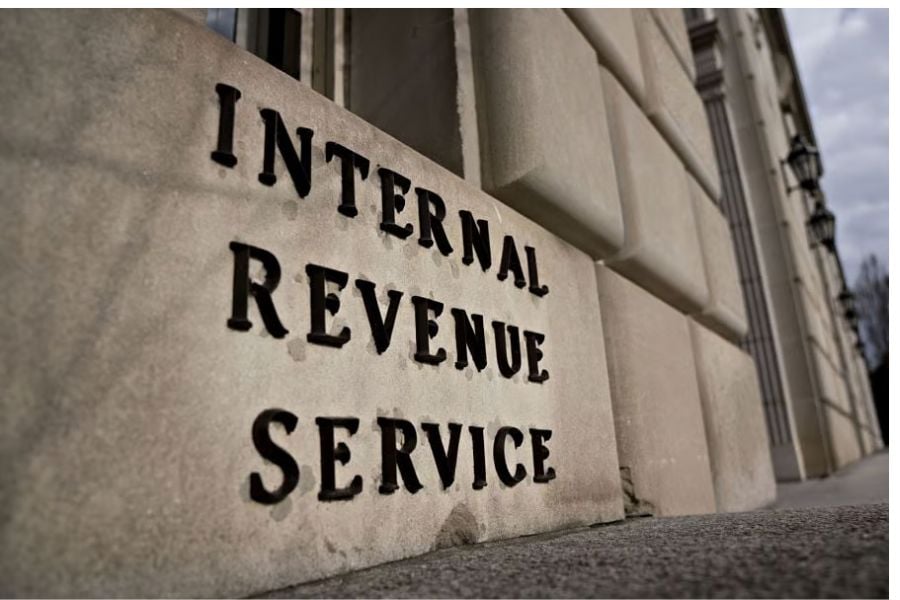

Last month, the IRS released its annual report, which among other things included a pledge to continue its focus on affluent Americans and corporations going to extreme and ostensibly questionable lengths to protect their assets from the taxman.
But those plans could change, as the agency's future direction stands to be reshaped by Donald Trump second-term focus on efficiency, along with billions of dollars of agency funding getting put in limbo.
That funding, which the agency received in 2022 under the Inflation Reduction Act IRS, was an $80 billion funding boost intended to improve enforcement, customer service, and technology. According to the IRS, more than half of the funds were allocated to pursue unpaid taxes from businesses and individuals earning at least $400,000 annually.
So far, the agency has counted major wins this year, collecting over $1 billion from wealthy tax delinquents and launching nearly 80 audits on large partnerships, including hedge funds and law firms.
But according to a report by MarketWatch, $20 billion of that funding is now in jeopardy due to legislative language in laws that temporarily averted a government shutdown. Without this money, the IRS estimates it would be able to conduct 8,000 fewer audits of high-income individuals and corporations between 2025 and 2029.
Wally Adeyemo, deputy Treasury secretary, warned that losing the funding could lead to a sharp decline in the IRS's ability to fulfill two of its core functions.
"[Y]ou could see a dramatic fall-off in our ability to ... raise revenue, especially from those people who are not paying on a regular basis — wealthy individuals and corporations — but also a dramatic fall-off in customer service,” he told MarketWatch.
Dave Kautter, a former acting commissioner at the IRS commissioner who served at the Treasury Department during the first Trump administration, said he expects at least part of the IRS budget will go on the chopping block.
"I expect the IRS budget to be reduced," he said, noting that while Republican lawmakers would back better technology and customer support, money for enforcement and overhead to support a larger IRS "will be substantially cut back."
A spokesperson for the incoming Trump administration alluded to that same concern, saying efforts to prevent the IRS reaching too deep into taxpayers' pockets falls squarely in line with his broader promise to create a leaner government.
"President Trump will deliver on his promise to stop the bureaucratic overstepping that occurs in many areas of the federal government, including the IRS,” Taylor Rogers, spokeswoman for the Trump-Vance transition team, told MarketWatch. "President Trump will cut taxes, increase transparency, and make government efficient again.”
After his November 5 win, Trump named Scott Bessent, a veteran hedge fund manager who's gone on the record to support tax cuts, as his pick for Treasury secretary. If confirmed as the successor to Janet Yellen, who has directed the IRS to focus the IRA budget towards efforts to audit taxpayers with more than $400,000 in income, Bessent would have free rein to overwrite those instructions and push the agency towards a new agenda.
For Lily Batchelder, who served as assistant secretary of tax policy at the Treasury for the majority of the Biden presidency, not having that guidance from the top could increase the incentive for enforcers at the agency to avoid cases involving higher income or wealth taxpayers.
“If you don’t have that directive or guidance in place, you’re signaling to the IRS that it is fine to focus more on the middle class, where audits are easier to do,” said Batchelder, who's also "concerned a Trump administration and Congress are going to repeal the long-term funding for the IRS, which has been absolutely transformative."

The move to charge data aggregators fees totaling hundreds of millions of dollars threatens to upend business models across the industry.

The latest snapshot report reveals large firms overwhelmingly account for branches and registrants as trend of net exits from FINRA continues.

Siding with the primary contact in a marriage might make sense at first, but having both parties' interests at heart could open a better way forward.

With more than $13 billion in assets, American Portfolios Advisors closed last October.

Robert D. Kendall brings decades of experience, including roles at DWS Americas and a former investment unit within Morgan Stanley, as he steps into a global leadership position.
Orion's Tom Wilson on delivering coordinated, high-touch service in a world where returns alone no longer set you apart.
Barely a decade old, registered index-linked annuities have quickly surged in popularity, thanks to their unique blend of protection and growth potential—an appealing option for investors looking to chart a steadier course through today's choppy market waters, says Myles Lambert, Brighthouse Financial.
